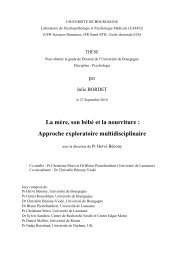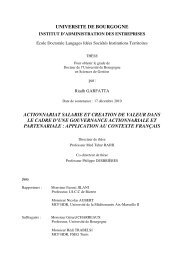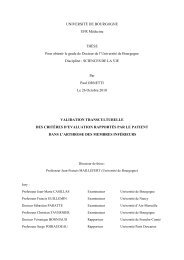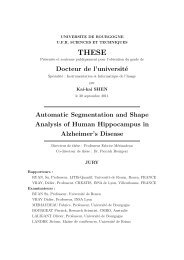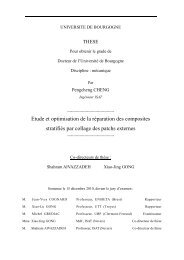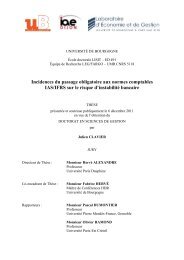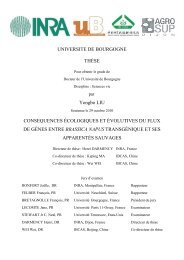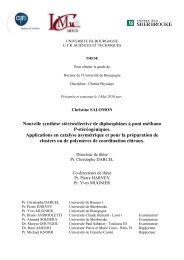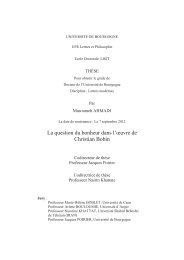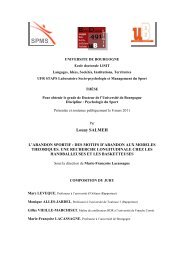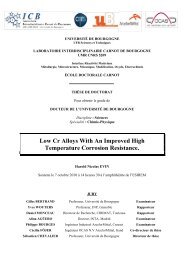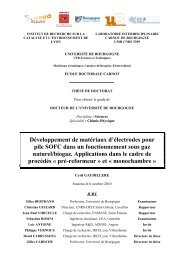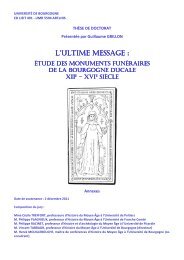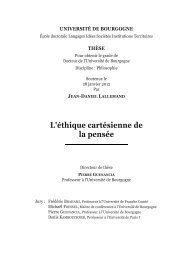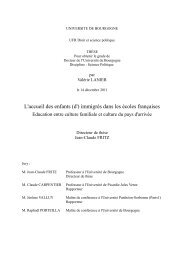Higher education in Asian countries and the role of international ...
Higher education in Asian countries and the role of international ...
Higher education in Asian countries and the role of international ...
Create successful ePaper yourself
Turn your PDF publications into a flip-book with our unique Google optimized e-Paper software.
127<br />
In this regard both organizations are help<strong>in</strong>g <strong>the</strong> develop<strong>in</strong>g <strong>countries</strong> by facilitat<strong>in</strong>g knowledge<br />
shar<strong>in</strong>g at global <strong>and</strong> regional levels, by establish<strong>in</strong>g communication among quality assurance<br />
agencies <strong>and</strong> by support<strong>in</strong>g <strong>the</strong> production <strong>of</strong> analyses <strong>and</strong> guidel<strong>in</strong>es. GIQAC completed its<br />
first grant period <strong>in</strong> 2007-08, second <strong>in</strong> 2009-10. At present it is implement<strong>in</strong>g its third grant<br />
period (2010-11). GIQAC is be<strong>in</strong>g funded by <strong>the</strong> World Bank.<br />
Capacity build<strong>in</strong>g activities, <strong>in</strong> <strong>the</strong> participat<strong>in</strong>g <strong>countries</strong>, that are f<strong>in</strong>anced by GIQAC <strong>in</strong>clude:<br />
<strong>the</strong> development <strong>of</strong> <strong>in</strong>ternational clear<strong>in</strong>ghouse <strong>of</strong> <strong>in</strong>formation on QA, <strong>the</strong> development <strong>of</strong> global<br />
work<strong>in</strong>g groups, regional sem<strong>in</strong>ars on quality assurance, tra<strong>in</strong><strong>in</strong>g for external reviewers <strong>and</strong><br />
<strong>in</strong>ternational staff exchanges <strong>of</strong> QA pr<strong>of</strong>essionals to provide <strong>and</strong> receive technical assistance.<br />
These <strong>in</strong>itiatives are implemented through <strong>the</strong> global <strong>and</strong> regional partner NGOs <strong>and</strong> IGOs.<br />
These organizations are: International Network for Quality Assurance Agencies <strong>in</strong> <strong>Higher</strong><br />
Education (INQAAHE), Association <strong>of</strong> African Universities (AAU), Arab Network for Quality<br />
Assurance <strong>in</strong> <strong>Higher</strong> Education (ANQAHE) , Asia-Pacific Quality Network (APQN) <strong>and</strong> La<br />
Red Iberoamericana para la Acreditación de la Calidad de la Educación Superior (RIACES) .<br />
5.1.2.9 Recognition<br />
With <strong>the</strong> <strong>in</strong>crease <strong>of</strong> <strong>in</strong>ternational student mobility <strong>and</strong> expansion <strong>of</strong> cross border <strong>education</strong> <strong>the</strong><br />
recognition <strong>of</strong> foreign degrees, diplomas <strong>and</strong> certificates is becom<strong>in</strong>g more <strong>and</strong> more important<br />
for <strong>the</strong> both receiv<strong>in</strong>g <strong>and</strong> send<strong>in</strong>g <strong>countries</strong>. The recognition <strong>of</strong> <strong>education</strong>al credential means its<br />
acceptance as a valid document or to make foreign credentials comparable. This gives its holder<br />
similar or same rights that are enjoyed by persons who possess national credentials.<br />
UNESCO has felt <strong>the</strong> need to address this problem long before to make student <strong>and</strong> knowledge<br />
mobility possible. Today UNESCO‟s activities <strong>in</strong> recognition are centered around its six<br />
Conventions on <strong>the</strong> Recognition <strong>of</strong> Qualifications (UNESCO, 2010). These conventions serve as<br />
legal documents between <strong>the</strong> signatory <strong>countries</strong>. Fur<strong>the</strong>rmore UNESCO General Conference <strong>in</strong><br />
November 1993 adopted a Recommendation on <strong>the</strong> Recognition <strong>of</strong> Studies <strong>and</strong> Qualifications <strong>in</strong><br />
<strong>Higher</strong> Education to ease <strong>the</strong> mobility <strong>of</strong> persons <strong>and</strong> exchange <strong>of</strong> ideas, knowledge <strong>and</strong><br />
experiences both scientific <strong>and</strong> technological. These <strong>and</strong> o<strong>the</strong>r measures taken by UNESCO are<br />
helpful <strong>in</strong> build<strong>in</strong>g <strong>the</strong> capacities <strong>of</strong> <strong>the</strong> member <strong>countries</strong> <strong>in</strong> recognition, network<strong>in</strong>g <strong>of</strong><br />
<strong>in</strong>stitutions <strong>of</strong> higher <strong>education</strong> <strong>and</strong> research, exchange <strong>of</strong> knowledge, skills, competencies <strong>and</strong><br />
<strong>in</strong>formation, <strong>and</strong> enhanc<strong>in</strong>g bilateral cooperation at all levels.



